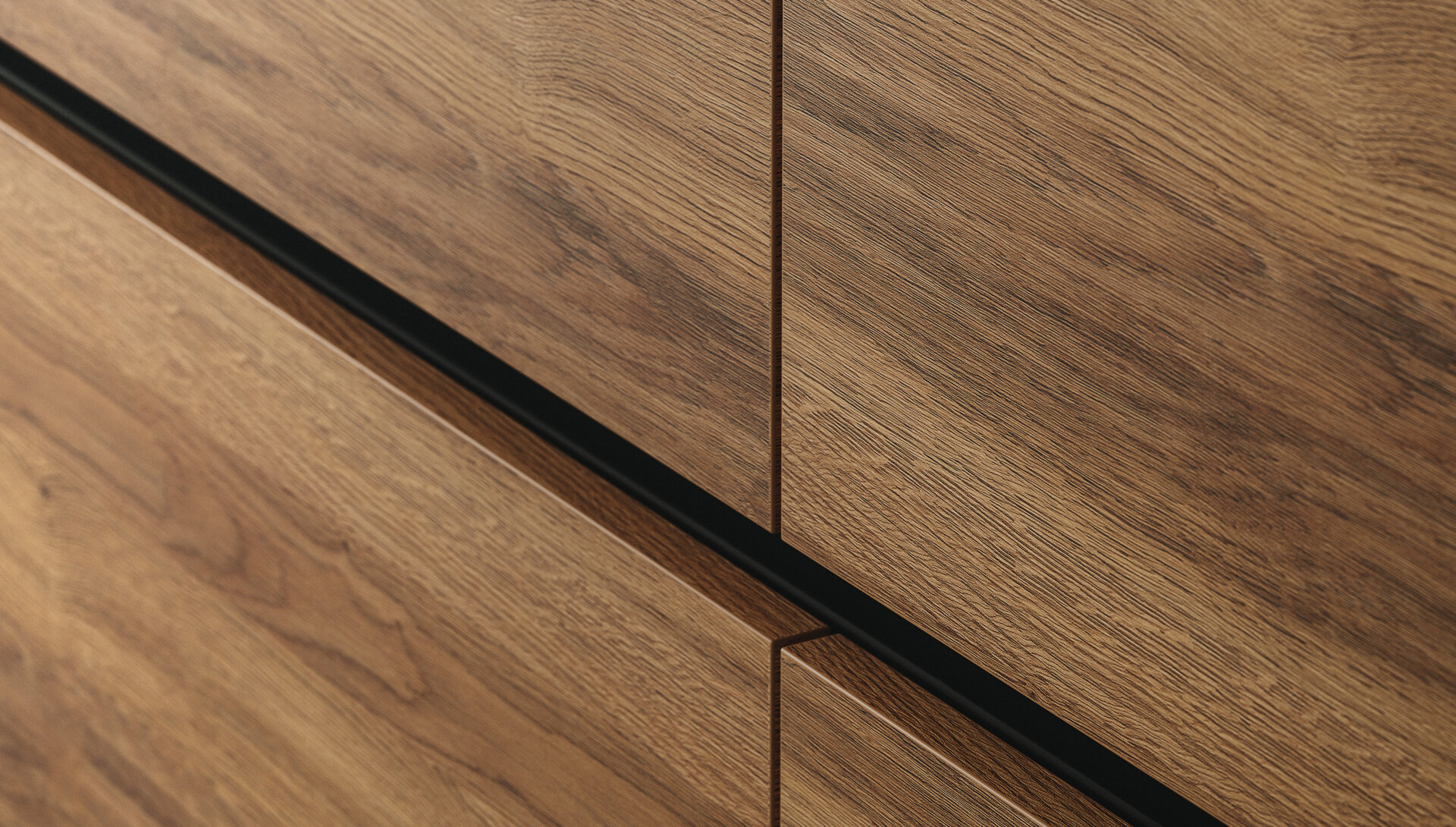Our kitchens are produced with the greatest possible care. To ensure you can enjoy it for years to come and the warranty conditions remain valid, please read the following instructions for care and use.
Our recommendations
- Remove protective film during or immediately after installation.
- Use a mild, preferably ecological household or kitchen cleaner, diluted in water, for cleaning the kitchen elements.
- Use a clean, soft, lint-free, slightly damp cloth.
- Do not use abrasive, aggressive or industrial detergents, furniture polish or wax, sanitary cleaners, scouring pads or steel wool and especially no steam cleaners.
- Do not leave a damp cloth or mop on the cupboard bases or shelve. Make sure that no water enters the seams. After cleaning always dry the kitchen elements with a soft cloth.
- Avoid excessive humidity and vapour from appliances such as kettles and coffee makers under wall cabinets and shelves, or through an open dishwasher or oven.
- Always use the extractor hood during cooking.
- Never place hot pans or objects directly on the work top, use coasters.
- Never cut food directly on the worktop, always use a chopping board.
Below you can read how you can best clean your kitchen. Finally, we give you some tips to prevent defects and damage!
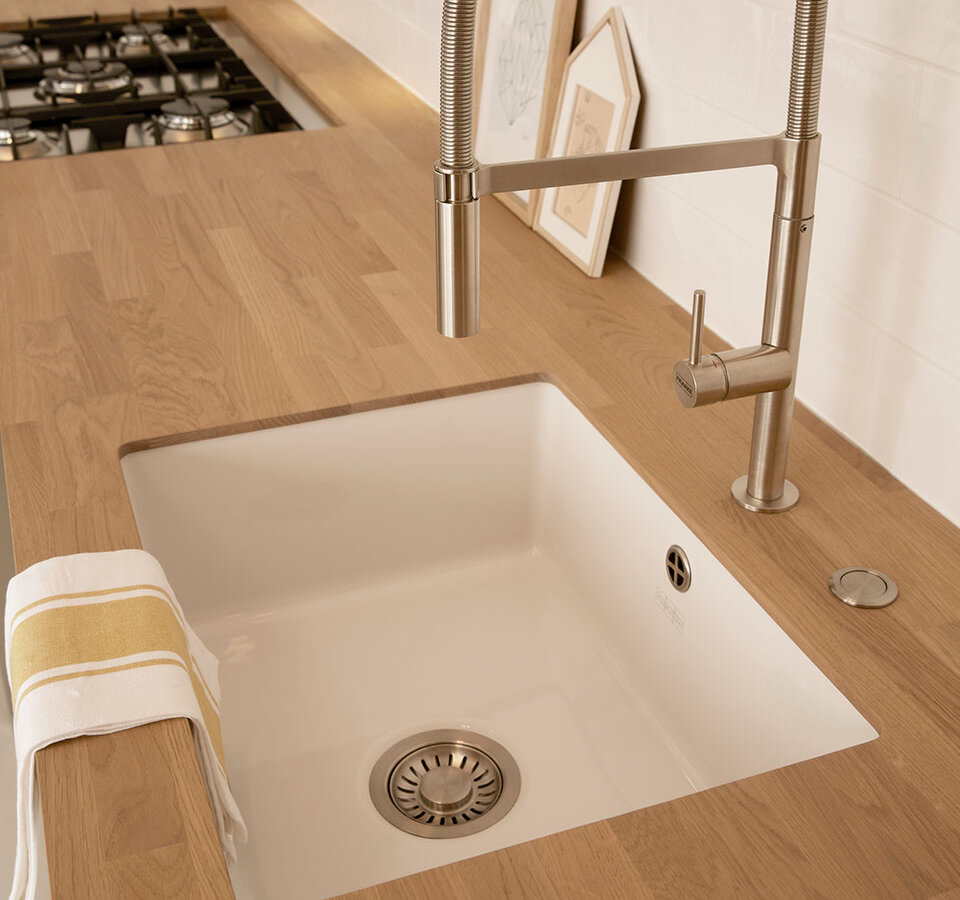
Melamine, lacquered MDF and foil
Remove stains as quickly as possible. There are substances that can no longer be completely removed when not cleaned immediately. Use a mild household or kitchen cleaner and a soft cloth. After cleaning, always dry the kitchen elements with a soft cloth to prevent water from penetrating the seams which could lead to swelling.
Handles and handle trims
Remove stains as quickly as possible. There are substances that can no longer be completely removed when not cleaned immediately. Use a mild household or kitchen cleaner and a soft cloth. After cleaning, always dry the kitchen elements with a soft cloth to prevent water from penetrating the seams which could lead to swelling.
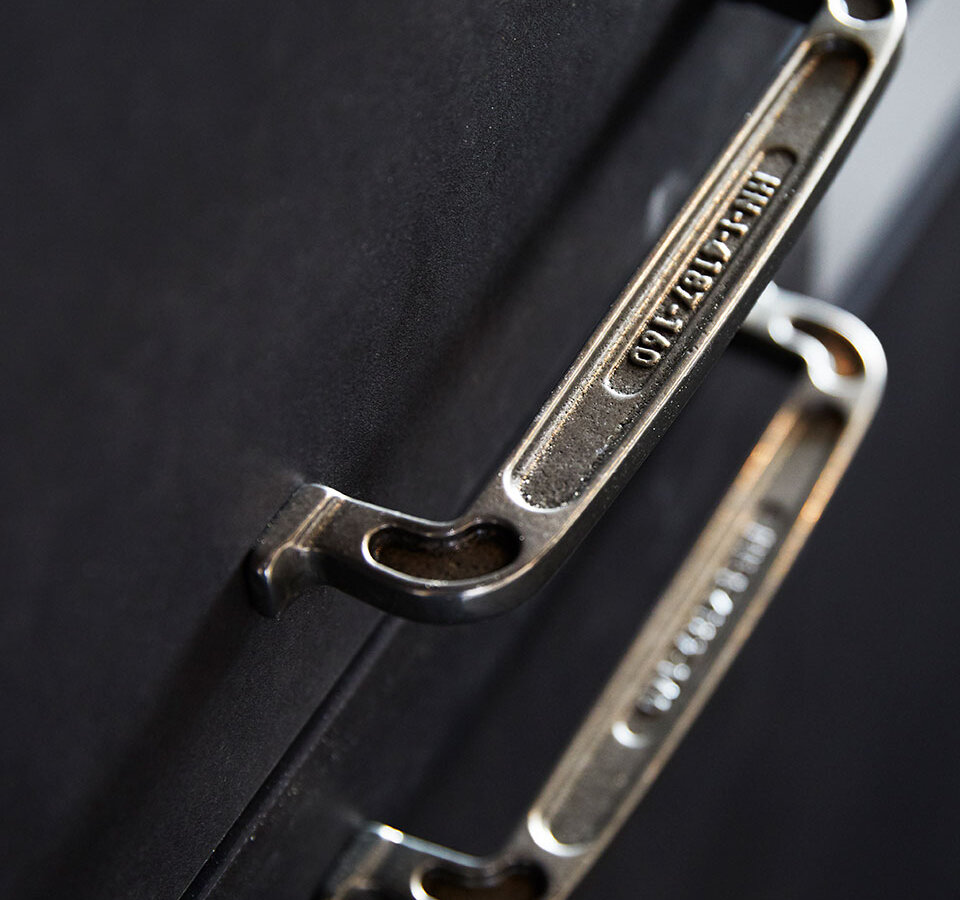
High gloss and ultra matt
Do not allow stains to dry on ultra matt. Remove stains immediately with plenty of water and, if necessary, a mild all-purpose cleaner or green soap dissolved in water. After cleaning, rinse the soap residue with lukewarm water. Be sure to use a clean cloth, as sand or dust can cause scratches. Do not use microfibre cloths or miracle sponges; they may contain small abrasive particles. Wipe the cleaned doors immediately afterwards with a soft cloth for a streak-free result and to prevent water from penetrating the seams which could lead to swelling.
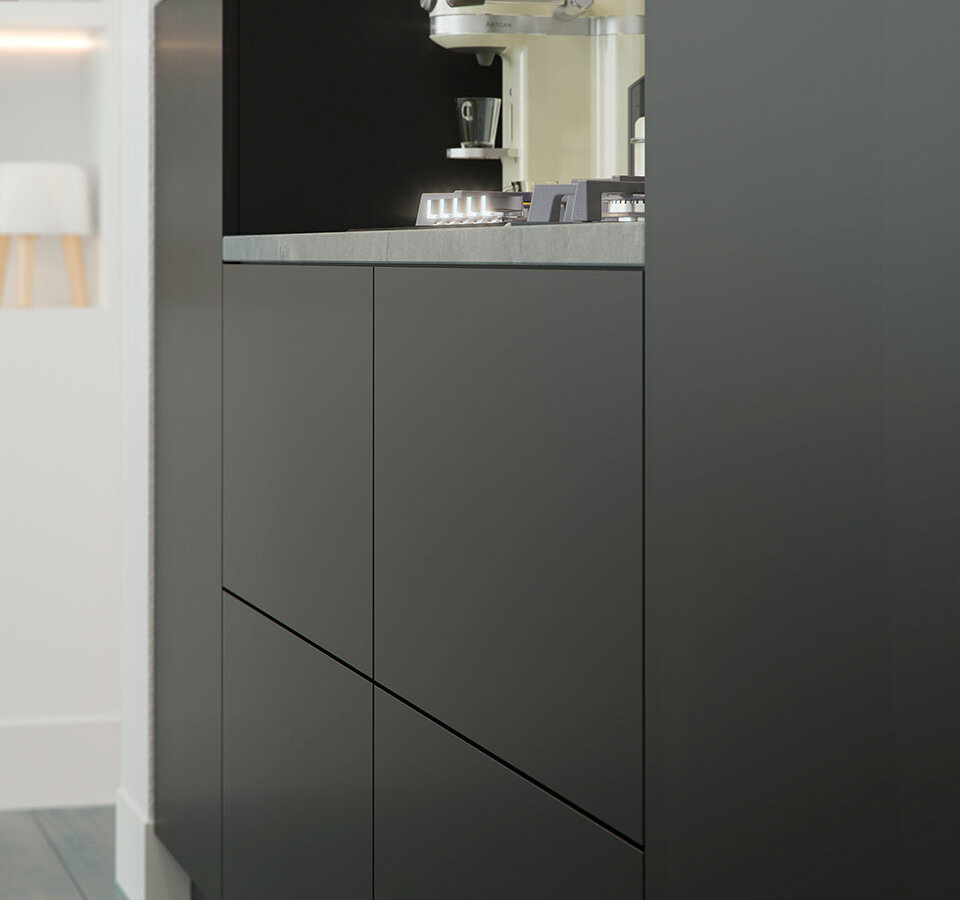
Wood and veneer
Remove stains as quickly as possible. There are substances that can no longer be completely removed when not cleaned immediately. Use a mild household or kitchen cleaner and a soft cloth or brush for cleaning. Swipe in the direction of the wood grain to remove dirt particles from the pores. Wipe the cleaned doors immediately afterwards with a soft cloth for a streak-free result and to prevent water from penetrating the seams which could lead to swelling.
Glass units
The glass can be cleaned with mild detergents and normal glass cleaners. Do not use chemicals or strong corrosive agents. Dry with a soft cloth or chamois for a streak-free result.
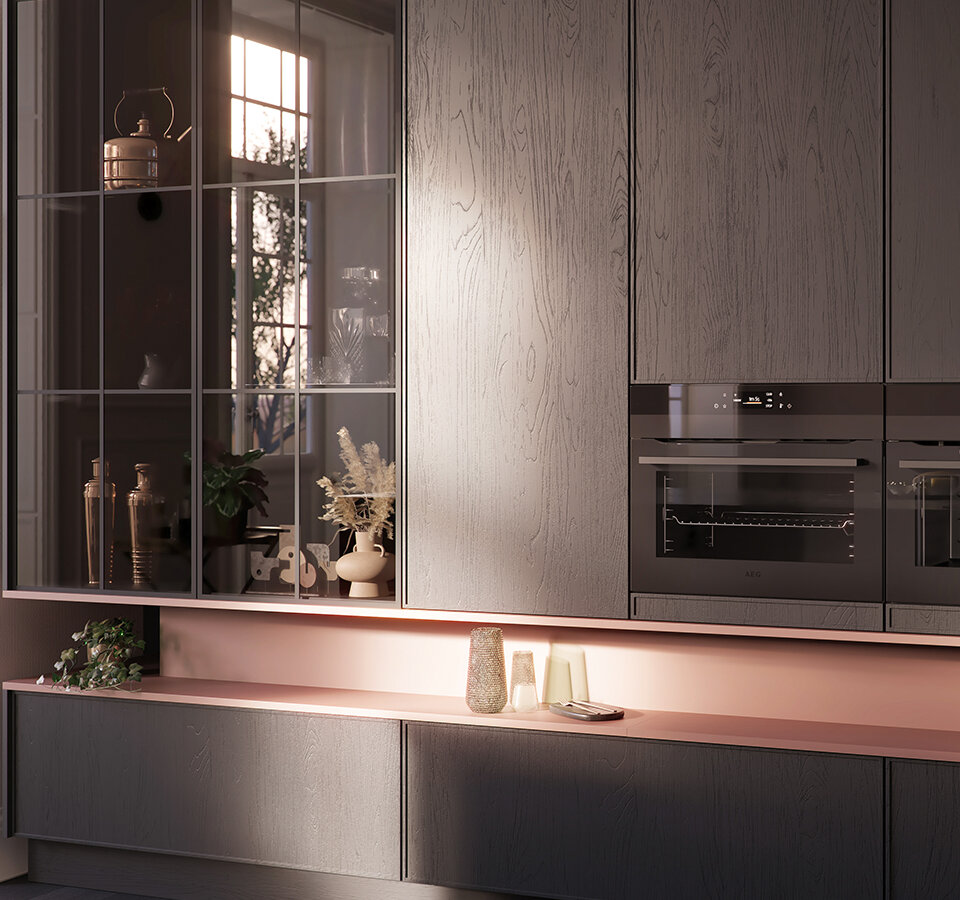
Hinges and drawers
Hinges
Thanks to the use of advanced technology, the hardware requires almost no maintenance. Lubricating the most used doors or valves once a year is sufficient. A drop of oil on the hinge is enough. Use conventional fine oils such as sewing machine oil for this. Do not use animal fats. Due to prolonged use, fronts may no longer be completely in line. You can then easily adjust the hinges yourself. find the instructions for this in the installation manual on our website.
Drawers
The rollers of the drawers and extendable elements are made of high-quality synthetic material and must not be lubricated. In order for the drawers to run smoothly, the guides must be kept free of dirt; especially dirt in granular form must be removed immediately.
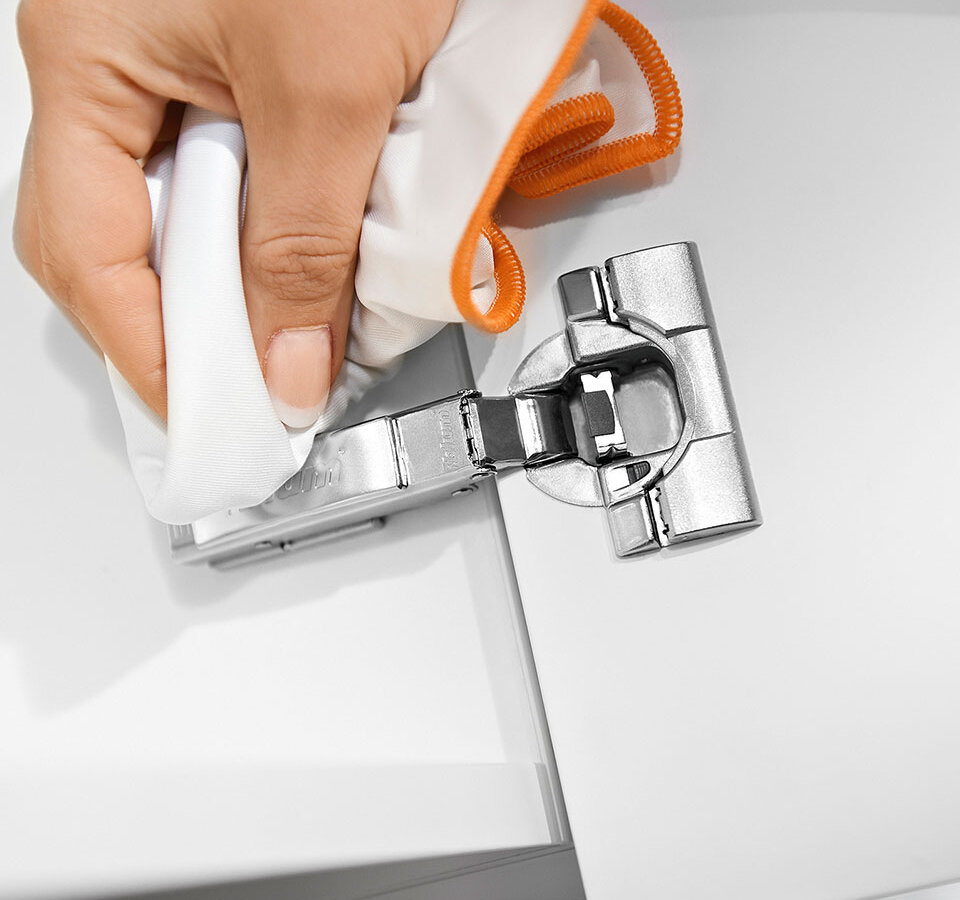
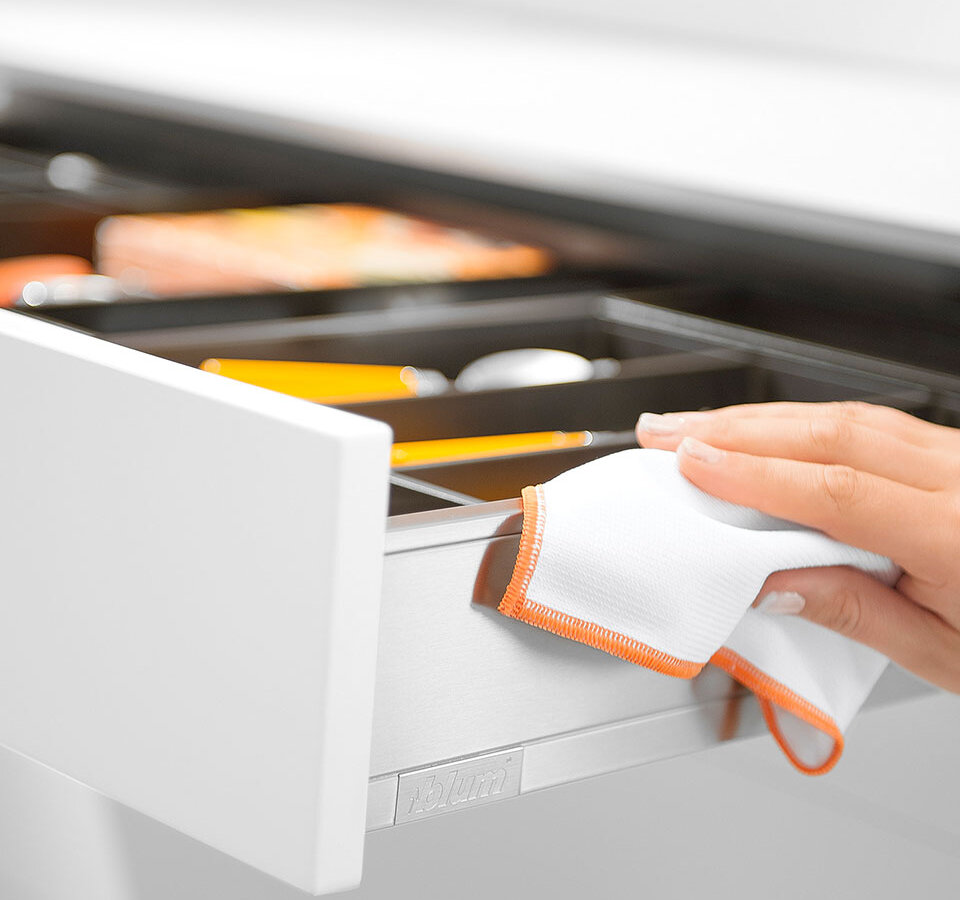

Preventing defects and damage
Prevent defects and damage
The kitchen elements not only require proper maintenance; they must also be assembled and used with care. Please pay attention to the following points:
General
The construction of the room where the kitchen is to be installed should be suitable for fitting kitchens; in particular, the wall construction has to be suitable for fitting wall units. Suitable mounting materials supplied by us are to be used.
Tempered glass
Tempered glass is a very robust material, but not unbreakable. In the event of overloading and damage to edges and / or surfaces, the stress balance in the glass is disturbed; as a result, the glass can break. Also avoid hard knocks or hits on the glass.
Wood
Wood is a natural material. Despite careful finishing and surface protection, solid wood components respond to strong climate changes with expansion and contraction. Colour changes due to light influences cannot be prevented despite ray-absorbing lacquer properties. The ideal humidity level is 45 - 70%. Provide an optimal room climate with air humidifiers or by ventilating well. Always use your extractor hood during cooking.
Worktop
Never place hot pans or objects directly on the worktop; use coasters. Always use a chopping board when cutting food.
Dishwasher
The underside of the work surface is protected by the mounted steam baffle which is part of the dishwasher. Always wait for the dishwasher to complete the cycle - including drying – before you open the machine. Never open the dishwasher when there is still warm, moist air in the dishwasher.
Kettles, coffee makers and other small devices
Steam is released when using devices lite kettles, coffee makers and egg cookers. Therefore, do not place these devices under furniture elements such as light strips or wall shelves/units, as the rising steam can cause damage.
Oven
The heat generated when using a (combi) oven must be diverted to the front. Keep the oven door closed when the oven is hot. Do not leave the door ajar during or after use as steam and heat can damage the furniture elements.
